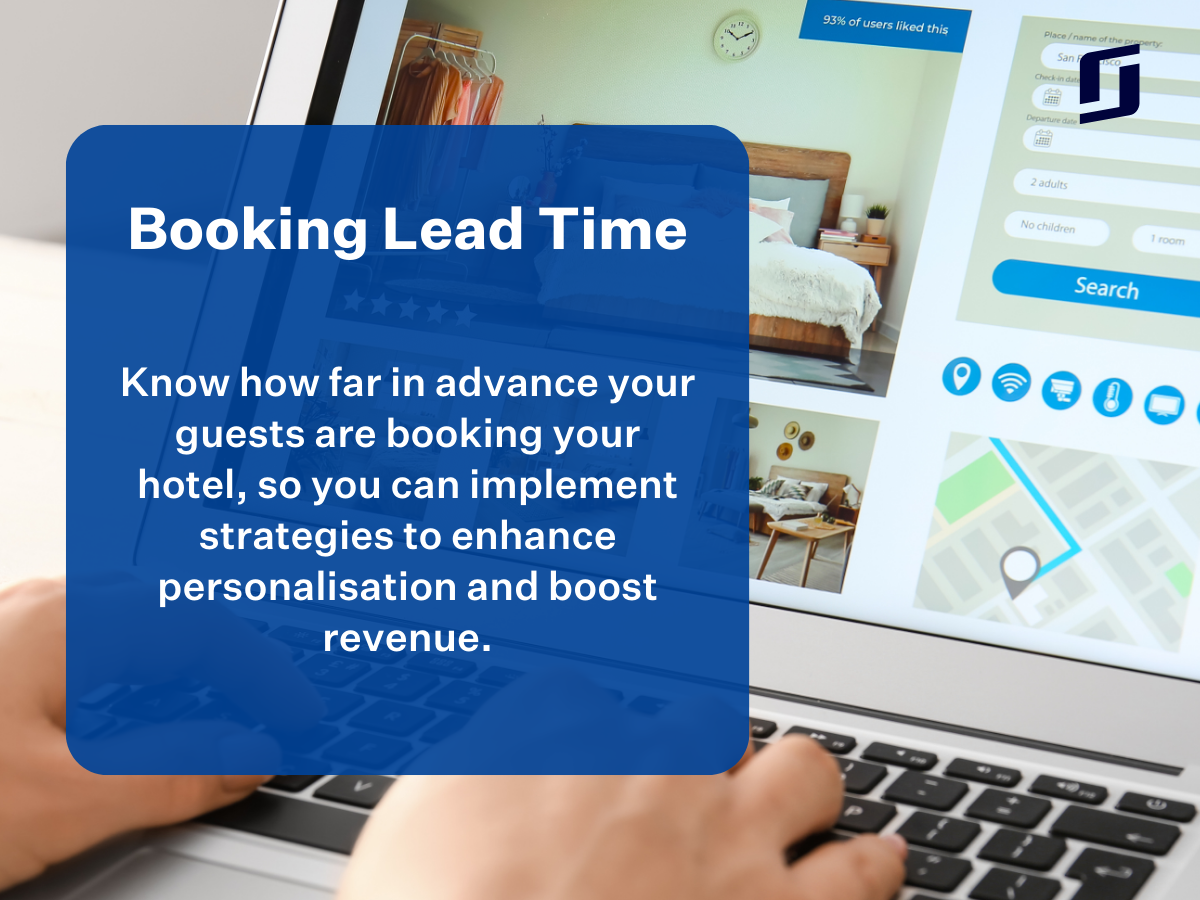What is booking lead time?
Booking lead time is the time between a guest making their booking and arriving at your hotel for their stay. For example, a guest who books your hotel on the 17th of July and arrives on the 31st of July has a booking lead time of 14 days.
The booking lead time is the window between purchase and experience in which many things can happen, including a cancellation, extra expenditure, modifications, or requests.
This blog will take you through all the ins and outs of booking lead time, and how your hotel can take advantage of it.
Table of contents
Why is booking lead time important?
Booking lead time is an important metric for your hotel to track because it helps with forecasting and strategic planning.
The further ahead your hotel has a room booked, the more revenue you know that you have confirmed for a certain time period. Understanding this, you can make adjustments to maximise the revenue from the rooms you haven’t sold and also put other plans in place to boost income.
Greater lead time also gives your hotel more time to learn about your guests. This allows them to plan for their stay so that it can be personalised for the guest to have the best possible experience, ideally resulting in positive online feedback and a return stay in the future.
Booking lead times will also enable the hotel to offer more targeted offers to incentivise additional guest spending to increase the profit of the business. Track booking lead time and maximise revenue What if you could use smart data, boost your hotel's income, and increase efficiency while also reducing your workload? Our smart hotel platform helps you do exactly that.

Lead time in booking hotels: What are the trends?
The average lead time in booking hotels tends to be within the range of 20-60 days. It’s important to note that average lead times can change from country to country, and over time, the global average shifts as well.
According to SiteMinder’s Hotel Booking Trends, average lead time in booking hotels has increased from 35.67 days in previous years to 36.43 days in recent years.
In terms of destinations, Ireland has the highest average lead time of the markets analysed at 53.69 days, while Malaysia has the lowest at 23.75 days.
These trends can often be influenced by the domestic vs international travel split, with international guests typically booking further in advance compared to dometic guests. For instance, last year, the biggest growth from the prior year was seen in Indonesia as enthusiastic guests from Australia, the UK, and the US booked well in advance.
When travellers are confident in the market conditions and more sure their booking won’t be cancelled and modified, they will be more likely to book with a higher lead time. This is why we saw lead time plummet to 22.68 days in the year after the pandemic shutdown, when COVID was still a huge factor.
Airbnb booking lead time
Airbnb booking lead time is hard to measure as no official reports have been released, however it’s safe to say that it will be similar to that of hotels. If you run an airbnb, pay attention to what the average booking lead time is in your country. Seasonality can also play a big role.
Your Airbnb will probably see a larger booking lead time for your high season, a slightly lower lead time for off-season holidays, and an even lower lead time again for your low season. It’s worth noting that guests on Airbnb can book up to two years in advance.
The majority of guests today are savvy operators who understand travel patterns and plan accordingly, meaning those who plan to stay at a property during high season will make their booking well in advance to ensure vacancy is available to them.

Maximum booking lead time: What should your strategy be?
In most cases, your maximum booking lead time will be dictated by the platform you are selling your rooms on. You can choose to set a maximum, such as two years on Airbnb or 360 days on Booking.com, though it will be rare for guests to book this far in advance
To encourage extended lead times and boost your chances of generating extra revenue, there are a few strategies you can try.
For instance, in your marketing and communications you can highlight the fact that early bird bookers:
- Get a better selection of properties
- Get a better selection of room types
- Have more time to cancel and book travel again if plans change
- Will have greater opportunity to take advantage of discounts and offers
- Give the hotel more chance to personalise their experience
It’s important to use data to your advantage, from pricing dynamically based on real-time market conditions to understanding your guests better, so you can maximise revenue all year.
For example, if you have records that show certain traveller demographics book further in advance or for particular times of the year, you can implement appropriate and relevant promotions to attract the right guests at the right time.
Tools to help you take advantage of booking lead time
By using smart hotel technology and tools, you’ll be able to analyse booking lead time at your hotel, and also put your plans into action quickly and easily.
By using a channel manager and business intelligence solution, you’ll have access to vital data including Booking Performance and Pace reports.
These will help you uncover metrics such as lead time so you can make informed strategic decisions to maximise revenue at your property.

